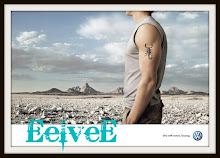what to shoot on
The format you shoot on will depend on your objectives and budget and will affect every part of the filmmaking process.
Which format you choose to shoot on will depend on:
your aims for the film
the demands of your script
the demands of your director
the limitations of your budget
See our guide, why make a short film, to help decide the aims of your project. Talk to your collaborators about how and why you are going to make your film. Read how other teams have done it. And if you have access to a camera person or director of photography, talk to them about the technical aspects of shooting on various formats.
shooting on film
The beauty of film is rarely in question, but the expense of it is usually prohibitive. Unless you expect your film to go to the major festivals (such as Cannes, London or Berlin), you will probably be looking to shoot on a digital format.
film stock
There are a great many different kinds of stock available. The two main companies that make film stock are Fuji and Kodak - both their websites give you an idea of what films have been shot using each film type. These two giants are the main manufacturers, and they are used to dealing with queries regarding short films. Each company has a representative who deals with short film enquiries and who also might be able to point you in the direction of other cheaper stockists, companies that handle recans or short ends of their stock. The mantra with film stock and short films is ‘beg, borrow, steal’. Except for the very well-financed short films, using film stock is only really possible if you can get an amazing deal.
One means of getting stock for free is to call up production companies who have just finished a shoot and ask them for any spare unopened cans, recans or ends.
www.theknowledgeonline.co.uk or www.kays.co.uk, both have full production company listings, but you will need to subscribe to get the best out of the sites. Alternatively, you could look up film production companies in the Yellow Pages or use the directory on the Regional Film and Video website: www.4rfv.co.uk/...
shooting on digital
There are many options when looking at the digital route, from buying your own digital video camera (DV Cam), to hiring the highest quality High Definition (HD/Hi-Def) camera.
See right-hand column for websites that usefully demystify the different formats and cameras that you could use.
There is no question that, in most cases, HD looks better than Digibeta, but there is an ongoing discussion in the industry about the possible benefits. It is difficult to compare HD to film as they are very different media and need to be treated as such. Some areas of the industry are trying to push HD as the way forward for shooting drama and some countries have invested heavily in development of equipment, but there are some strong arguments against it. For example, the costs on HD post-production are often much higher than on DV or film.
If you have just a small amount of money to spend, you may find a friendly post-production company professional or editor, who is happy to talk you through the pros and cons of shooting on various formats. Remember that the format not only affects the shoot, but also the post-production process with which you edit and finish your film.
Subscribe to:
Post Comments (Atom)

No comments:
Post a Comment